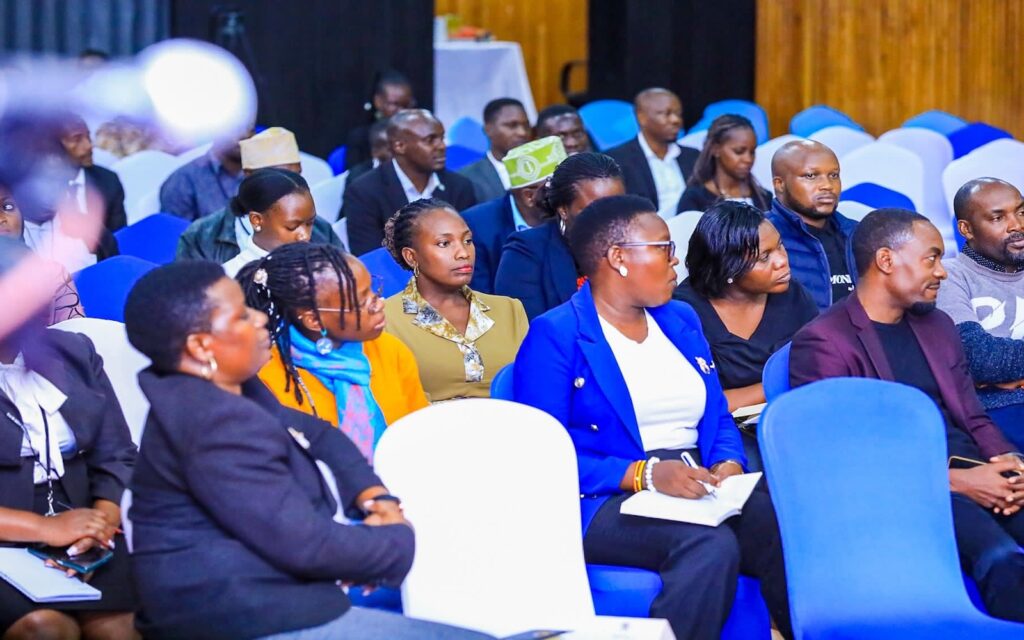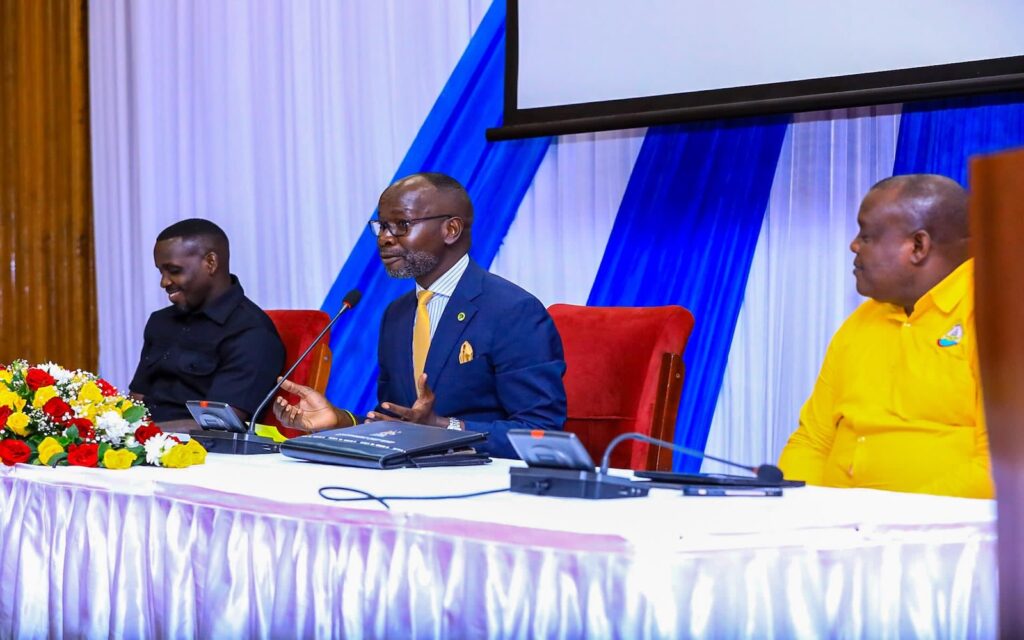
Government officials, civil society leaders, and members of the press gathered at Parliament on Friday to commemorate World Press Freedom Day, uniting around a common message: the need to protect journalists and strengthen media freedom in Uganda.
The 2025 global theme, “Freedom of Expression in the Face of the AI Revolution,” drew attention not only to the opportunities and risks brought by emerging technologies, but also to the persistent challenges facing press freedom in Uganda.
Organized by the Uganda Parliamentary Press Association (UPPA) in collaboration with the Parliament of Uganda, the event sparked a vibrant conversation on the media’s role in democracy, current threats to journalists, and the responsibility of both state and private actors.
Government Chief Whip, Hon. Denis Hamson Obua, called for a balanced reflection—acknowledging both Uganda’s progress and its remaining struggles.
“Sometimes we focus too much on the present challenges without appreciating how far we’ve come. Today, we can assemble, speak, and publish freely—freedoms that were once unimaginable,” Obua said, invoking his cultural proverb “Notte en aye Teko,” meaning “unity is strength.”
In contrast, Leader of the Opposition Hon. Joel Ssenyonyi, himself a former journalist, painted a more sobering picture. He warned that press freedom is increasingly under threat, citing harassment and physical attacks on journalists during the recent Kawempe North by-election.
“We can’t call ourselves a democracy while journalists are being beaten for doing their jobs,” Ssenyonyi said. He also criticized the Uganda Communications Commission for stifling content and urged media owners to improve working conditions for their staff. “You can’t expect quality journalism when reporters are unpaid and unsupported,” he added.
Despite their differing perspectives, both Obua and Ssenyonyi agreed on the vital role of the media in strengthening democratic governance and called for continuous dialogue between stakeholders.
UPPA President Sam Ibanda Mugabi highlighted the ethical dilemmas faced by underpaid reporters and advocated for reduced internet costs to improve access to information.
Hon. Tonny Ayoo, Chairperson of the ICT and National Guidance Committee, expressed concern over the perceived merging of journalism and political activism. He cautioned that such blurred lines could provoke unnecessary state backlash.
“Journalists must remain within legal and professional boundaries,” Ayoo said, while also lamenting the chronic underfunding of key regulatory institutions like the Media Council and the Uganda Media Centre.

Kira Municipality MP Hon. Ibrahim Ssemujju Nganda recalled disturbing cases of violence against journalists, warning that abuse could intensify ahead of the 2026 elections if not addressed. His concerns were echoed by Charity Ahimbisibwe of the Uganda Women Media Association, who called for military personnel to be kept away from electoral events to ensure journalist safety.
Joseph Beyanga of the National Broadcasters Association urged better coordination between media houses and security forces, noting that protective measures during past elections were poorly sustained.
Solomon Sserwanja, Executive Director of the African Institute for Investigative Journalism, denounced attacks on the press as a systematic effort to silence critical voices. “We are chained, and we need to break loose. Our challenges go beyond artificial intelligence—we’re dealing with suppression,” he said.
Wrapping up the event, Tororo County South MP Hon. Geoffrey Ekanya emphasized the need to invest in investigative journalism as a tool for holding powerful institutions accountable.
“A strong, courageous, and well-supported media is essential to keeping abuse of power in check,” he said.
As Uganda prepares for its next election cycle, the day ended with a renewed call for action—urging stronger safeguards for press freedom, fair treatment of journalists, and open dialogue in the face of technological and political change.